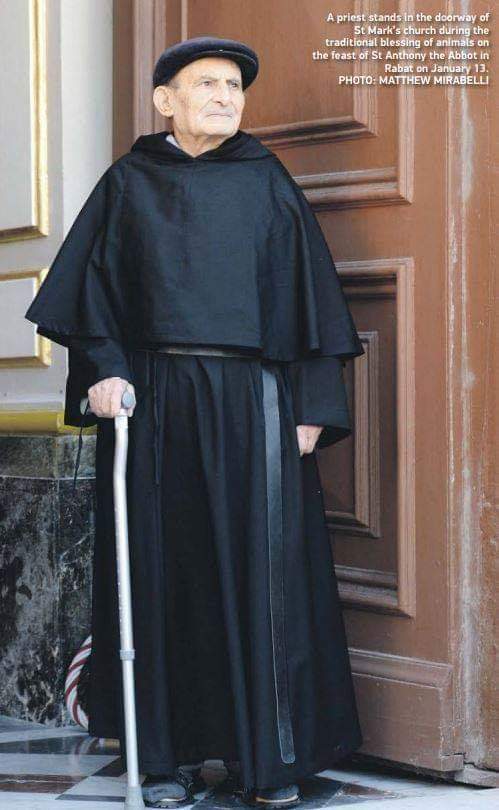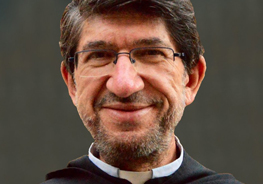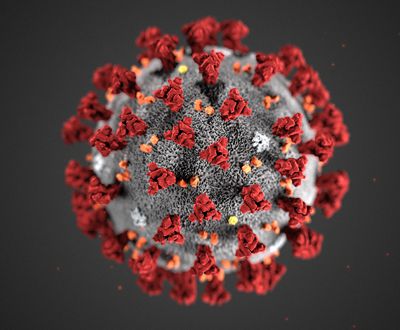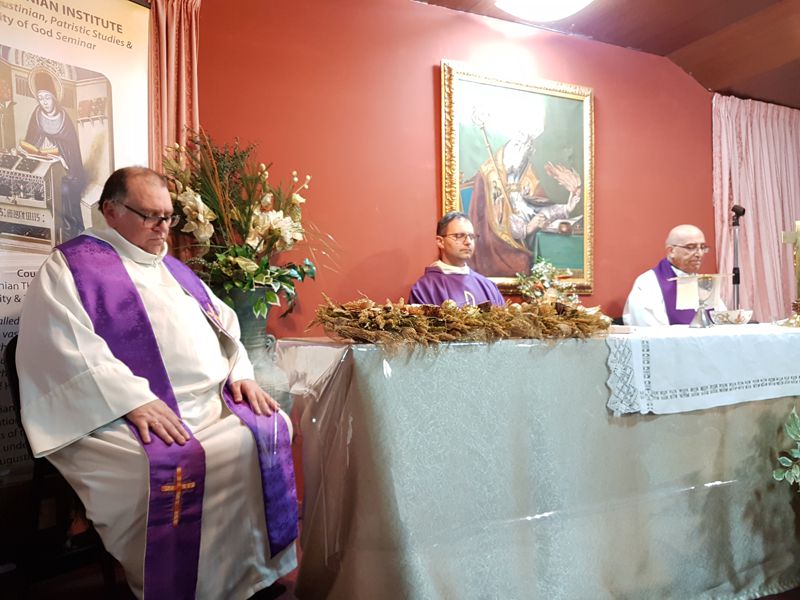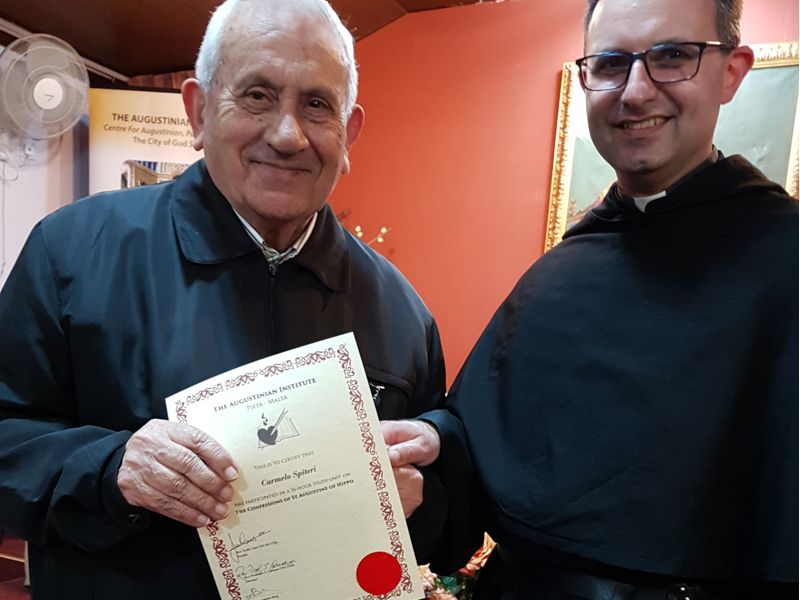Għeżież ħbieb,
Iż-żminijiet partikolari li qed ngħixu fihom, irriduċew il-ħajja tagħna għal dak li hu minimu. Jekk ir-Randan kien dejjem joffri stedina biex ninqatgħu xi ftit mir-rutina mgħaġġla tal-ħajja u nħarsu ’l ġewwa fil-qalb tagħna, din is-sena kien mument li fiżikament, qatagħna ħafna aktar milli qatt konna nimmaġinaw. Huma ġranet li poġġewna f’taħlita ta’ emozzjonijiet li jvarjaw minn biża’ u tensjoni għal mumenti aktar ferrieħa fil-preżenza ta’ dawk aktar għeżież jew ta’ xi ħadd li forsi ħaseb fina.
F’dawn iċ-ċirkustanzi xtaqt l-ewwel u qabel kollox nistedinkom biex nagħmlu mil-limitazzjonijiet tal-mument, opportunità. Forsi qatt daqs din is-sena mhu ser ikollna l-ispazju biex nirriflettu fuq il-misteru li dawn il-jiem ipoġġu quddiemna bħala Nsara anke jekk imċaħħda milli niltaqgħu u niċċelebraw flimkien fil-knejjes sbieħ tagħna. Ejjew napprofittaw mill-misteru tat-tbatija u s-salib, mill-opportunità li naqraw il-Kelma, mill-misteru tal-qawmien ta’ Kristu, u nħalluhom ikunu verament vleġeġ qawwija li jmissu l-qalb tagħna. Ejjew insegwu flimkien iċ-ċelebrazzjonijiet mid-djar tagħna permezz tal-mezzi ta’ komunikazzjoni u għalkemm fiżikament imbegħdin, inħossu l-preżenza ta’ xulxin f’komunità waħda ta’ fidi.
Dan iż-żmien jistedinna anke nkunu aktar solidari ma’ xulxin. Tkun ħaġa sabiħa li nagħmlu kull sforz biex inżommu lil xulxin fil-ħsieb u t-talb tagħna. Tajjeb li nkomplu nkunu kreattivi biex nużaw kull mezz biex nuru l-viċinanza tagħna lil dawk kollha li bħalissa jinsabu weħidhom jew dawk kollha li jeħtieġu kull forma ta’ għajnuna, minn dik finanzjarja għal dik ta’ ħtieġa konkreta jew ta’ viċinanza fis-solitudni tal-ħajja.
Jekk l-Għid il-Kbir huwa dejjem ċelebrazzjoni ta’ ferħ u tama, din is-sena għandu jkun iż-żmien per eċċellenza biex din it-tama nħalluha tissarraf f’kuraġġ u ferħ ġenwin. F’ċirkustanzi bħal dawn li qed ngħixu fihom faċilment inħossuna emottivament aktar qrib tat-tbatija ta’ Ġesù (u ta’ Ommu Marija). Din hi esperjenza partikolari li għexna b’mod aktar konkret matul dan ir-Randan aħna u nsegwu d-dinja kollha tinħakem ftit ftit minn din il-pandemija u li aktarx ser inkomplu ngħixu għal ftit ġimgħat oħra. Imma ċ-ċelebrazzjoni tal-Għid f’dawn iċ-ċirkustanzi nemmen li għandu jkollha timbru aktar qawwi minn qatt qabel tat-tama li Kristu rebbieħ inissel fil-qalb ta’ kull Nisrani. Il-Misteru tat-tridu tal-Għid isib il-milja tiegħu fiċ-ċelebrazzjoni tal-Qawmien mill-Imwiet: Kristu li rebaħ fuq il-mewt u d-dnub. Kristu huwa d-dawl li jibqa’ jurina lil hinn anke quddiem ċirkustanzi li xi drabi jħalluna bla kliem. Nhar is-Sibt mhux ser nagħmlu l-mixgħela tad-dawl fuq iz-zuntier, imma ejjew inħallu d-dawl veru ta’ Kristu jixgħel il-qlub tagħna.
Ix-xewqa tiegħi għalikom f’dawn il-jiem hija li l-esperjenza ċentrali tal-Għid ta’ din is-sena tkun verament messaġġ qawwi ta’ tama għalina lkoll. Jistqarr Santu Wistin, fl-Espożizzjoni għas-Salmi: “F’dan il-mument, it-tama tagħna hija l-ħajja tagħna, fil-futur tkun fl-eternità.” (103, 4, 7) Nawgura li dan il-mument ngħixuh verament f’esperjenza ta’ tama li tibqa’ tissarraf f’aktar pożittività; aktar apprezzament għal dak kollu li aħna u għal dak kollu li għandna; u fuq kollox aktar fidi fi Kristu li qatt ma jħallina weħidna. Aktar ma nimtlew bit-tama, aktar jirnexxilna nwassluha lil dawk kollha li jgħixu madwarna u li jeħtiġuha daqstant f’dan il-mument meta donnu sibna ruħna f’soċjetà mbeżżgħa minn statistika ta’ mard li nistennew kuljum.
Ma’ dan l-awguri nixtieq inwassal il-viċinanza tiegħi u tal-aħwa l-aktar lil dawk minnha li huma vulnerabbli kemm minħabba saħħa u anke età. Nieħu gost nara tant persuni li qed inkunu l-ewwel sinjal ta' tama għal xulxin meta nieħdu ħsieb xulxin, ngħinu lil xulxin u nsegwu d-direttivi b’rispett u mħabba għal xulxin. Nassigurakom li aħna l-aħwa Agostinjani qed inżommukom ħafna f’qalbna u fit-talb tagħna f’dawn il-jiem partikolarment aħna u niċċelebraw iċ-ċelebrazzjonijiet tat-tridu tal-Għid mingħajrkom. Il-vojt tal-preżenza tagħkom inħossuh imma jekk Alla jrid ma ndumux ma nerġgħu niltaqgħu u nkomplu niċċelebraw il-fidi tagħna flimkien.
Minn qalbi u f’isem l-aħwa kollha nawgura lilkom u lill-familji tagħkom il-ferħ ta’ Kristu rebbieħ fuq il-mewt.
P. Leslie Gatt osa
Pirjol Provinċjali




